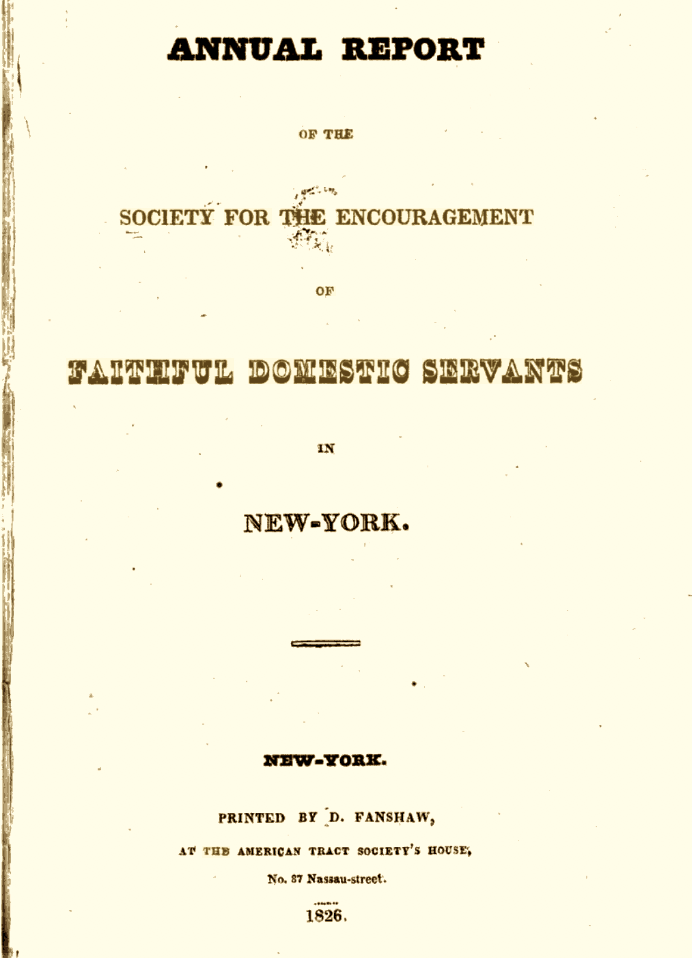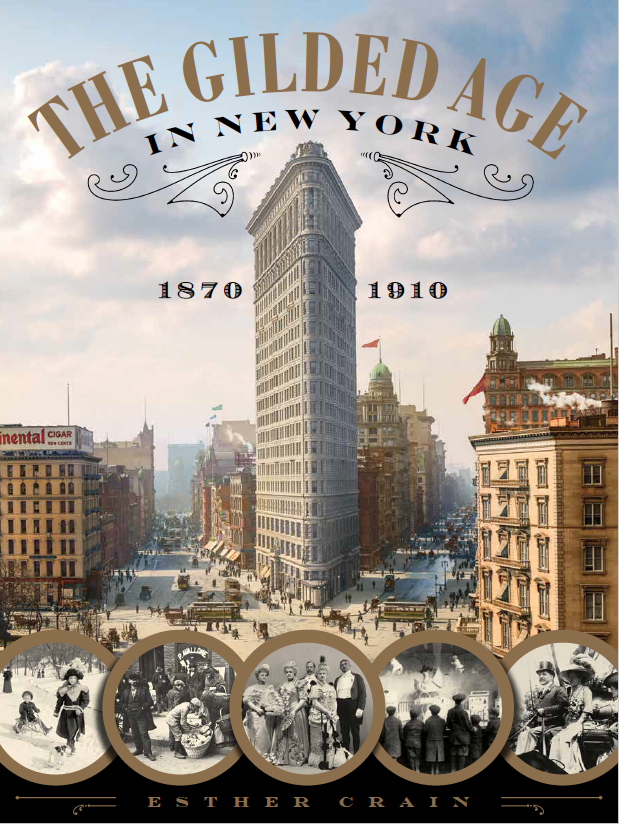Working as a domestic servant in 19th century New York City had plenty of challenges.
Sure, servants received room and board in addition to their wages, and they usually had at least Sunday afternoon off. But living in another family’s home was isolating and lonely—particularly if you didn’t speak English or weren’t accustomed to urban life.
The work could be physically difficult, too. Climbing up and down staircases carrying wood or coal for fireplaces, airing out heavy bed linens every morning, wringing wet laundry, and scrubbing pots and pans…day after day, this was true labor.
So it’s hardly surprising that the families who hired servants often had a hard time keeping them. In the late 19th century, the problem of finding and maintaining hard-working, loyal servants was summed up as “the servant question,” or more appropriately, “the servant girl question,” since most maids, cooks, and other servants were overwhelmingly young and female.
Wealthy Gilded Age wives often discussed the servant girl question among themselves. But employers in the early 19th century turned to another resource: a newly formed organization that tried to guide servants to have better character and morals, and to not change families so often.
Called the Society for the Encouragement of Faithful Domestic Servants, this wonderfully named organization officially formed in New York City in 1826. The Society took its inspiration from a similar group in London, known as “The Society for Improving the Character and Usefulness of Domestic Servants,” according to the group’s first annual report.
The name of the London group better sums up much of what the New York chapter was all about. “No one can be ignorant, at least no house-keeper needs to be told, that we are very dependent upon our Domestic Servants for a large share of our daily comforts,” the report began.
“Indeed, it may be safely asserted, that if all the other arrangements and connexions of a family are as happy as fall generally to the lot of humanity, bad Servants are alone sufficient, if not to destroy, at least to mar, much of the calm happiness of domestic life.”
The report called out the tendency of servants to have a “love of incessant change,” in other words, moving on to another servant job or different type of work. “This restlessness of mind, and love of change, is especially true of the young and unwary female servant,” the report stated.
By changing employment, they “become impatient of control, or of advice, negligent of their duty, and, after wandering from place to place, deteriorating at every change, they not infrequently end their days in the miserable haunts of vice.”
The group advised employers how to manage their servants, and they also acted as an employment agency, matching qualified servants to households that needed them. This appears to be a crucial part of the group’s mission, as the “rapid growth of our city” has made it difficult to find enough people willing to do servant work.
[Fourth floor maids’ room at the Merchant House Museum]
They also awarded bonus money to faithful servants—from $3 to $10, depending on how long the servant stayed with their employer. (After one year of faithful service, servants were awarded a bible.)
For such a mission-oriented group, the Society didn’t last very long. By 1830, the organization dissolved, according to Leslie Harris’ In the Shadow of Slavery—noting that the group’s founding in 1826 coincided with the end of slavery in New York in 1827 as well as the first great wave of Irish immigrants, who typically took positions in domestic service.
What took the place of the Society when it came to guide servants and their employers? No one specific organization, it seems. No wonder servant issues escalated throughout the 19th and early 20th centuries.
[Top image: MCNY, 1847: 56.300.1320; second image: Google; third image: MCNY, 1890: 45.335.21]





